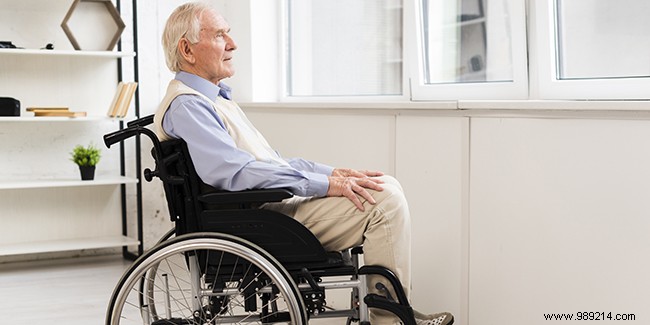
The disability compensation benefit (PCH) is financial assistance that covers the expenses that a person with a loss of autonomy must meet to carry out acts of daily living. This benefit is paid under certain conditions, in particular relating to the degree of disability, age and resources of a person.
The purpose of the disability compensation benefit (PCH) is to reimburse human, technical, transport assistance or accommodation-related expenses that a disabled person is obliged to bear in order to adapt their living conditions to their loss of autonomy.
This may include, for example, expenditure linked to the employment of a home help, a support service structure in the fields of health, the use of a family carer, the arrangement of one's accommodation, or his vehicle. The PCH also provides for the reimbursement of certain so-called exceptional expenses such as the maintenance of a wheelchair or the repair of a medical bed. Finally, this financial aid can enable the disabled person to acquire and maintain a pet intended to make them more independent, up to a limit of 3,000 euros per period of 5 years.
The disability compensation benefit (PCH) is personalized financial assistance, the amount of which depends on the situation of each beneficiary. It is awarded to people residing in France on a stable and regular basis at their home, in a social or health establishment. Foreigners from outside the European Union must hold a resident card or a residence permit.
The first condition for benefiting from the PCH is the degree of autonomy. The person concerned must either experience so-called "absolute" difficulty in carrying out an activity, i.e. not be able to carry out an activity at all on their own, or experience so-called "serious" difficulty in carrying out an activity easily. In both cases, it can be difficulties related to mobility, communication with others or the inability to take care of oneself properly.
To apply for PCH for the first time, you must be under 60 years old. However, a person who meets the conditions to receive it can apply for PCH until they are 75 years old or if they are over 60 and if they still have (or had) a professional activity.
To renew a request for PCH, the age condition is no longer taken into account if the person meets the conditions for allocation and if he has not made a request to receive the personalized autonomy allowance as a replacement ( Apa). PCH cannot be combined with Apa.
PCH can also be awarded to children and adolescents under the age of 20 under certain conditions.
The PCH is a financial aid that comes under the jurisdiction of the departmental council that pays it. It is not awarded subject to means testing. However, the latter are taken into account to calculate the part of the expenses concerned that may be left to the beneficiary. In other words, the lower the income of a person who is entitled to the PCH, the less he will have to finance part of these expenses himself.
Thus, the rate of coverage by the PCH of expenses related to the loss of autonomy is 100% if the beneficiary's resources (N-1) are less than or equal to 26,845.70 euros per year (figure for 2018 ). If its income exceeds this amount, the PCH bears 80% of the expenses concerned. These coverage rates are also set by limits relating to the costs of the services reimbursed.
To perform this calculation, the resources of the year preceding the PCH request are taken into account. The income considered excludes, depending on the case:
Note that amounts paid under the PCH cannot be recovered from an estate.
The request for the PCH must be made to the Departmental Houses for People with Disabilities (MDPH) whose role is to welcome and support people with loss of autonomy and their relatives, using form cerfa n° 13788 *01. The latter is a very detailed medical certificate, completed by a doctor. The PCH request should be sent to the MDPH preferably by registered letter with acknowledgment of receipt.
The examination of a PCH request is carried out by a multidisciplinary team which draws up a personalized compensation plan which is then sent to the Commission on the Rights and Autonomy of Persons with Disabilities (CDAPH) for decision. The latter takes place within 4 months of the filing of the PCH application. If no response is given beyond this time, the PCH must be considered to have been refused.